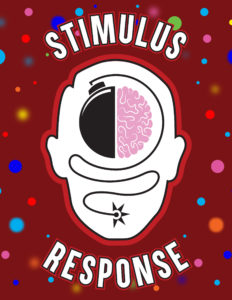The projector beamed its predictable power-point display onto the white backdrop drooping from the ceiling above us. To kick off this three-day professional development seminar, a senior NCO prompted a question: “What is mindfulness?”
As the anxiety-ridden individual I am, I refrained from answering right away. I listened to everyone else’s responses and then, when I had built up enough courage, I uttered, “self-awareness.” The briefer tossed me a validating head-nod and my heart rate slowed down. I don’t know what it is with my extroverted, social mind sending conflicting signals to my body, but I digress. My answer, while not wrong, was a piece of the bigger picture.
Then, it clicked as he said, “There’s a space between stimulus and response.” The moment between an action, and a response, can be summed up with an analogy: the bomb, the spark and the fuse.
The bomb represents a response with negative outcomes. The spark represents the stimulus. And the fuse represents the space between them. You can defuse the bomb, but it may take time. In that case, you’ll need a longer fuse. If the fuse is too short and you fail to defuse the bomb, well…boom goes the dynamite!
This topic immediately resonated with me because of a recent situation I’d faced weeks before attending this seminar.

It came at me like a semi-truck on the autobahn. As a young NCO, I have very little experience in dealing with confrontation at a level in which I have authority. I had used my authority as an NCO to give a lawful order. The Airman’s response to the order wasn’t what I had expected. While it wasn’t necessarily a wrong response, it definitely wasn’t the appropriate response for that moment. This was the spark.
Because I wasn’t prepared, I did not choose the length of fuse needed for the situation. So, my mind made itself up and gave me the shortest fuse in the known universe. And then…boom went the dynamite! Instead of shrapnel, the metaphorical bomb hurled shreds of multi-colored confetti around me, each color representing a different emotion.
I then began spewing out the “Hold your horses, Airman, now you listen here…”-type response. It honestly wasn’t the worst confrontational experience a fresh NCO could have had, but it could have been much better. If only I had heard what this senior NCO had shared with us about mindfulness sooner.
He explained it so well. What do you do when faced with these kinds of situations? Take a pause. Just breathe. Relax. Think. What caused the Airman to say this? Why was the Airman upset? What was happening in the Airman’s life? Asking these simple questions may be all you need in finding the appropriate response, instead of letting that bomb detonate.
Then came the awkward part of the brief. A room full of grown adults were asked to close their eyes, be completely silent and breathe. I could hear the stomach of a hungry NCO in the back of the room grumbling. “Just breathe,” the instructor repeated. “And if you start to think about work, just let it go.” I saw this in movies all the time, and I always chuckled. But this made sense. Here and now, I needed to let go. I don’t do that enough.
As we sat there all statuesque, I remember feeling my heart beating rhythmically. I remember what it smelled like in that room, and I remember the subtle noises that would otherwise get lost among the usual ruckus. As someone who gets over-stimulated very easily, it was nice. My mind was calm, and although my eyes were closed, my vision had never been clearer. It was then I knew I had control over the fuse. I choose how long it is.
Next time a confrontational situation occurs — because let’s face it, there will be a next time — I will have this lesson under my belt. It will serve as a reminder to utilize the space between stimulus and response so I don’t have to sweep up the pile of colorful confetti. I can teach Airmen right from wrong, or even better from worse while showing them what it means to be a leader. I don’t want to be viewed as the enemy; I want to be viewed as the NCO who genuinely cares. Because I do care. My actions need to prove it, and this professional enhancement seminar showed me that.


